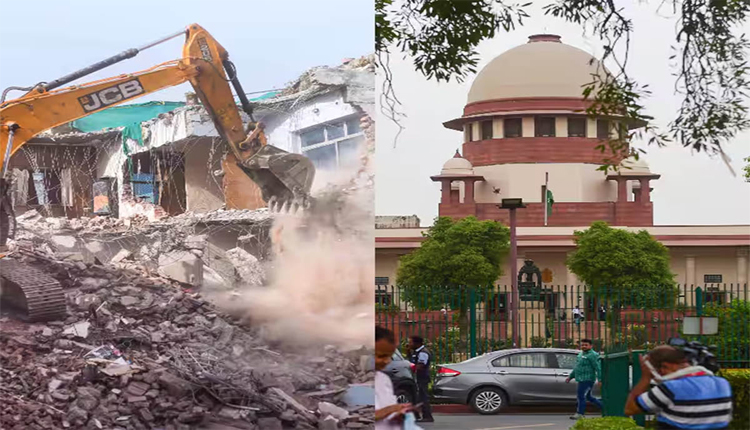New Delhi: The Supreme Court is continuing its hearings on the interim stay on bulldozer actions across India. A bench comprising Justices BR Gavai and KV Viswanathan is presiding over the case, which seeks to address concerns surrounding the use of bulldozers to demolish alleged unauthorised constructions. In the previous hearing, the court had extended the stay on bulldozer actions until 1 October.
Appearing before the court, Solicitor General (SG) Tushar Mehta, representing the governments of Uttar Pradesh, Madhya Pradesh, and Rajasthan, suggested that comprehensive guidelines regarding the use of bulldozers should be prepared for the entire country. Mehta emphasised that actions taken to clear public roads, water bodies, and railway lines must be in the public interest and that the government’s approach remains secular, irrespective of religious affiliations.
During the hearing, the court discussed the legitimacy of issuing notices before demolitions and the need for maintaining digital records. Justice Gavai stated that demolition orders should not be executed solely based on allegations or criminal charges. He emphasised the importance of due process, adding that proper notices should be issued and recorded through registered channels to safeguard both citizens and officials.
Justice Gavai also highlighted the need for caution, saying, “We will ensure that demolition cannot be done arbitrarily or without proper procedure.” The court acknowledged that unauthorised constructions must be dealt with appropriately but stressed that justice must be balanced.
Referring to the rising number of demolitions, Justice Viswanathan pointed out that around 4.5 lakh structures have been demolished over the past few years. The Solicitor General responded, stating that while this is only a fraction of unauthorised constructions, the figure represents a genuine concern. The court expressed its intent to provide clear guidelines to courts handling unauthorised construction cases in order to avoid any further ambiguity.
In the hearing, petitioners argued that in Gujarat, bulldozer actions had continued despite the Supreme Court’s previous orders, resulting in the destruction of 28 homes. The bench assured that it would look into these instances.
The Supreme Court reaffirmed that demolitions may proceed for unauthorised structures on public property, such as roads and railway lines, but cautioned that proper legal procedures must be followed. The final ruling is expected to outline detailed guidelines to ensure that future demolitions are conducted lawfully and fairly, with no scope for misuse.



Comments are closed.